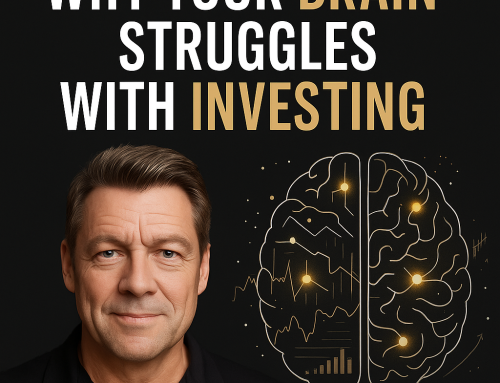Tom and Linda’s “Too Much” Problem
Tom and Linda came to see me a couple of years before Tom’s planned retirement at 62. They’d done everything “right.” Worked hard, lived modestly, looked after their pensions, and kept debt to a minimum — just a small mortgage in the past. Linda had already retired from teaching and was enjoying the slower pace, and they both talked excitedly about travelling and spending more time with the grandkids.
When I ran their cash flow projection, the results were outstanding.
“You’re in a very strong position,” I told them. “Based on the assumptions used in the cash flow, you can increase your spending by around £25,000 per year and still not run out of money until age 95. You could even handle a stock market crash of 72% and still maintain your current lifestyle — and you only need a very small amount of growth on your savings and investments to make it all work.”
But instead of relief, they both looked uneasy. They’d spent decades worrying about not having enough, so hearing they could spend more didn’t sit comfortably.
That moment summed up something I’ve seen many times — when it comes to retirement, peace of mind isn’t always about the numbers.
The Psychology Behind the Numbers
That meeting pushed me to look deeper into the emotional side of money. I’ve since completed a Certificate in the Psychology of Financial Planning — not because I wanted another badge, but to better understand what really drives people’s financial behaviour.
Through that work, I came across the research of Dr. Brad Klontz, who talks about money scripts — unconscious beliefs about money that often form in childhood and shape how we think and act around it for life.
Tom grew up in a council house in the 1950s. His dad was a miner who was laid off twice, and he still remembers his mum crying over bills. Linda’s parents were children of the Great Depression — the kind who saved everything “just in case.” Both came from backgrounds where scarcity was the norm.
They’d developed what Klontz calls money vigilance — an ingrained need to save, prepare, and protect. It had served them brilliantly in working life. But now, in retirement, it had quietly turned into a cage.
Rewriting the Script
Instead of talking about growth rates and inflation assumptions, we spent a few meetings exploring what money actually meant to them. For both, it boiled down to one word: safety. Spending, even on things they could easily afford, triggered anxiety.
So we built small, practical steps to help them ease into enjoying what they’d earned — a separate “Joy Fund” of £10,000 set aside purely for guilt-free spending. It wasn’t about indulgence; it was about learning to give themselves permission.
They also decided to help their children financially while they were still here to see the impact — something that brought them far more joy than the thought of leaving a larger inheritance later.
Two years on, they’ve travelled to New Zealand (business class, no less), helped both children onto the property ladder, and started a small charitable fund supporting local food banks.
When they come in for reviews now, they talk about experiences, not anxieties. “We’re still careful,” Tom says, “but we’re enjoying life too.”
The Lesson
Tom and Linda’s story is a reminder that having enough isn’t just a financial question — it’s a psychological one.
You can have millions in the bank, but if your inner narrative is still shaped by memories of struggle, you may never feel wealthy. Understanding your own money story — where it came from and whether it still serves you — is just as important as understanding your cash flow.
Because financial freedom isn’t about a number. It’s about feeling safe enough to enjoy the life you’ve worked for.
Discover Your Retirement Mindset
If Tom and Linda’s story feels familiar, you’re not alone. Many people approach retirement unsure whether they have too much, just enough, or not enough — and even fewer feel confident about how to spend without worry.
As an Independent Financial Planner with a background in financial psychology, I help people uncover where they truly stand and build a plan that balances logic with peace of mind.
If you’d like to understand your own position — and start enjoying the life you’ve worked for — get in touch for a confidential conversation.
And look out for my upcoming book, Are You REALLY Ready for Retirement? — where I explore the emotional, psychological, and practical sides of preparing for life after work.






